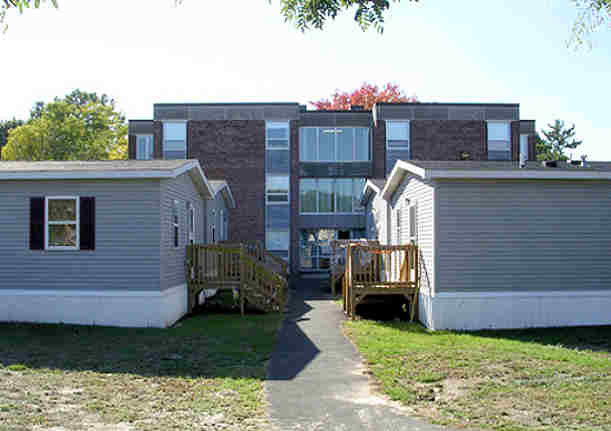Modular Buildings Prep Boston for Olympic Games
The U.S. Olympic Committee has chosen Boston in its bid for the 2024 Summer Olympic Games. With so many athletes, officials, and international visitors to house and entertain, new and used modular buildings (for sale at lower prices) would be a great solution for the living quarters, stores, restaurants, viewing platforms, and other amenities that an Olympic village would demand.
Boston is one of the oldest cities in the country (founded in 1630). Consequently, a lot of revitalization would be required to accommodate athletes and spectators if the Games are awarded to the city. Deployment of modular buildings, however, would take advantage of lower construction cost, minimal site preparation, speed of completion, flexibility, unlimited number of designs and styles, and reduced environmental impact.
Modular Genius is one example of an award-winning modular builder that specializes in design-to-occupancy modular construction across the nation for permanent and relocatable structures.
A Reusable Olympic Village
A recent decision by the International Olympic Committee, called “Agenda 2020,” attempts to reduce the cost of the games and increase sustainability. Rather than building costly permanent facilities that often sit empty after the Olympics, host cities are being encouraged to partner with the private sector for the first time to construct temporary and reusable facilities on land that could be developed commercially after the Games.
Accordingly, Boston city officials plan to center much of the revitalization on the Olympic village, which is tentatively planned for the site of the former Bayside Expo Center. Along with a temporary stadium in South Boston, the land could be transformed into a mixed-use development of housing, retail, and entertainment after the Games to better fit the city’s long-term planning needs.
Greater Boston has more than 100 colleges and universities, giving it an important advantage. One plan would be to construct an Olympic village with modular buildings and re-use them afterward for student housing at adjacent UMass-Boston as well as overcrowded institutions in other areas of the city.
Cost-Effective Modular Dormitories
Single and multi-story modular dormitories can be designed for any conceivable purpose, with exterior finishes such as brick, stucco and other architectural surfaces. In fact, it’s difficult to distinguish them from conventionally built structures.
Modules can be also designed to emulate vintage building facades, such as the historical beauties in the Boston area, to blend in with their surroundings. A 9,000 sq. ft., three-story dormitory at Muhlenberg College in Pennsylvania, the Modular Building Institute’s 2014 winner of the Best in Show Award for Permanent Modular Housing, is a perfect example.
Dormitory interiors can be configured with everything from bedroom suites, bathroom/ shower facilities and kitchen areas, to common areas, such as study or meeting rooms, fitness centers and laundry facilities, or recreational spaces, such as game rooms, Internet cafes and TV lounges.
Built almost entirely off-site in a factory environment, new modular buildings are highly customizable, available in an unlimited number of floor plans and designs, and meet or exceed local building, safety and occupancy codes.
Modular dormitories and other types of buildings are at least 20% less expensive to build due to stringent factory processes and fewer wasted materials. Used modular buildings offer even greater savings. From start to finish, project completion is typically 40% faster than that of conventional stick-built structures. Finally, structures can be disassembled, moved to another location, and reassembled.
For Boston, and other cities looking for affordable, flexible housing solutions, there are new and used modular buildings for sale from Modular Genius and other modular building companies that will meet every need, for the Olympic Games or otherwise.

